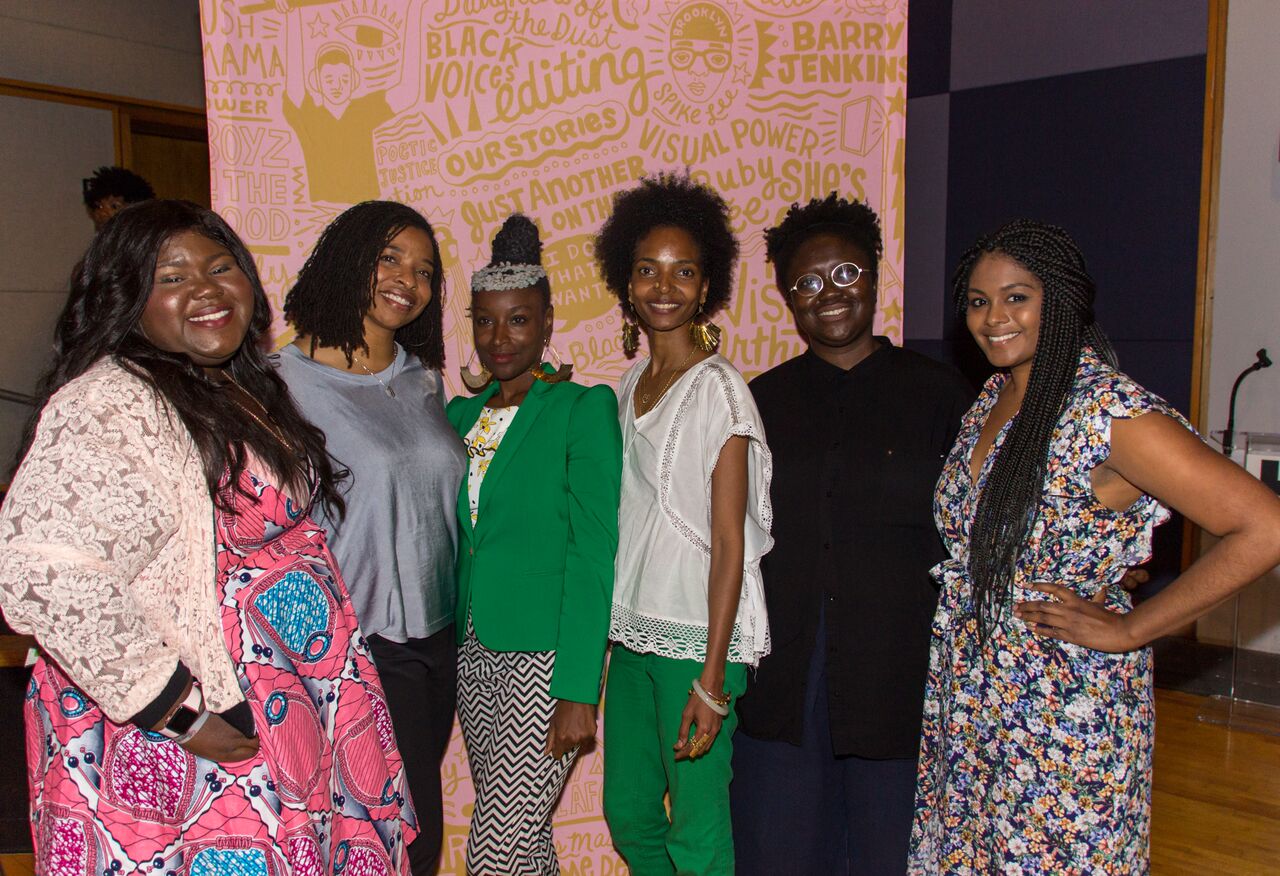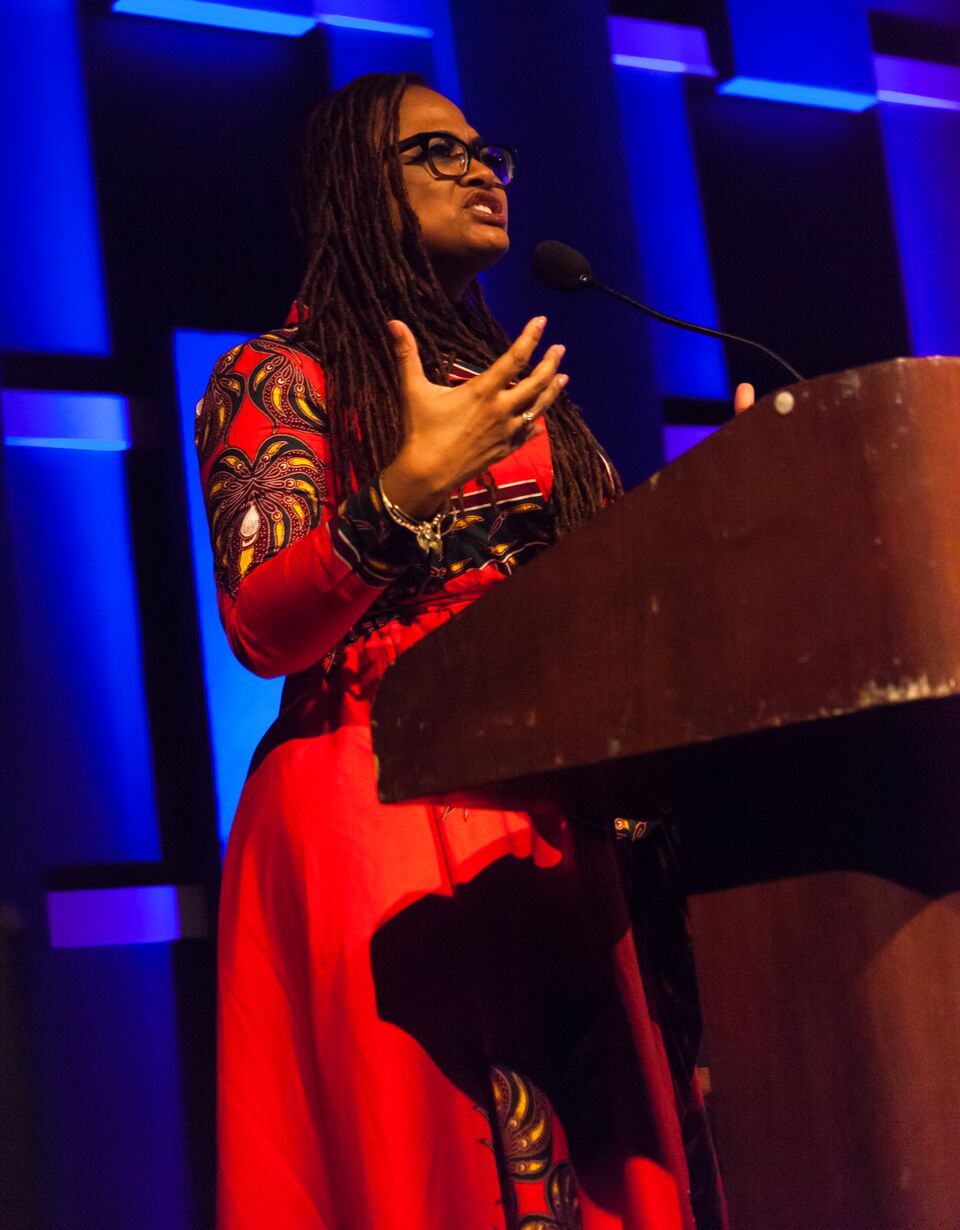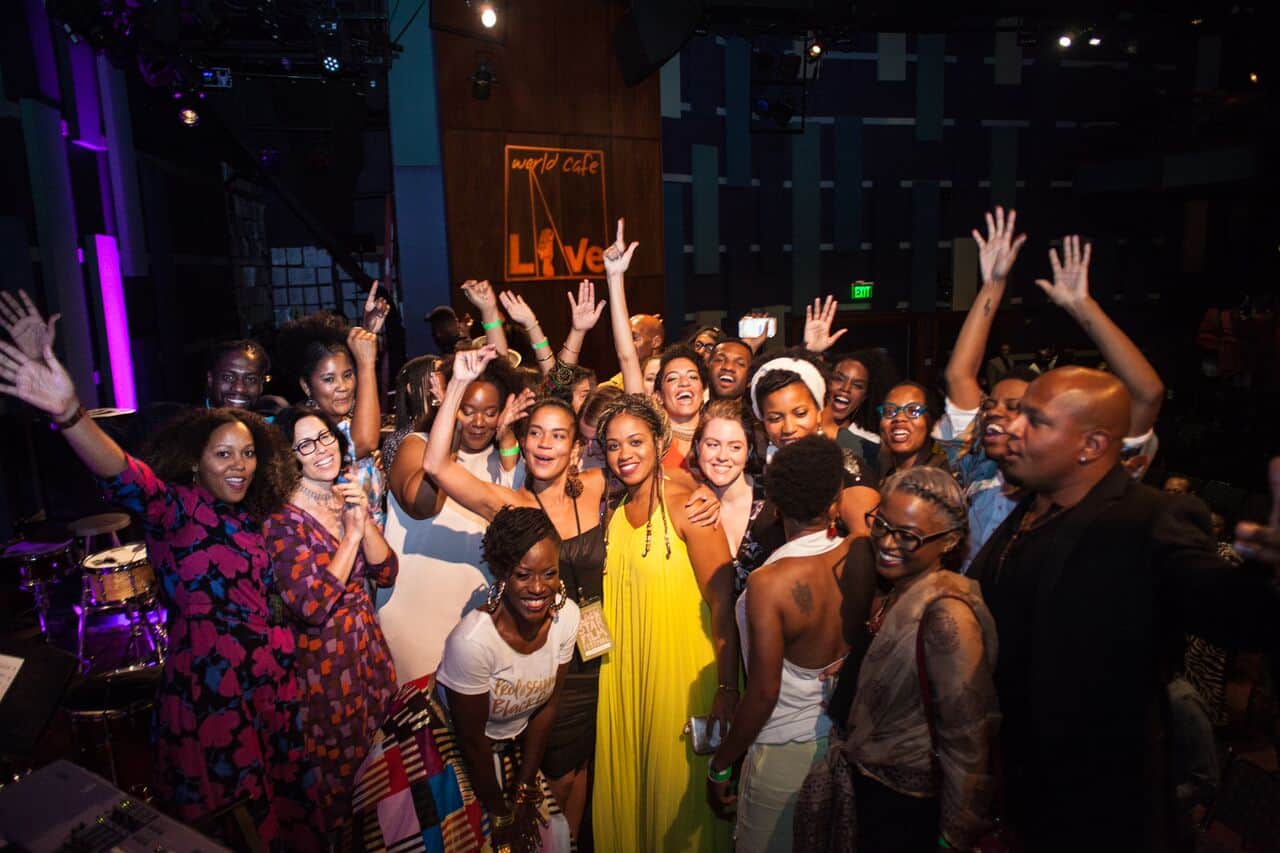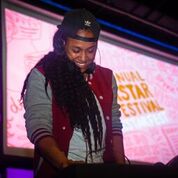In 2003, author bell hooks read the commercial film industry for filth in her book Rock My Soul: Black People and Self-Esteem. Tackling issues of colorism, stereotypes and self-esteem, she challenged those who love Black and Brown film to embrace an idea of filmmaking that looks at Black folk in a more holistic way. While she agreed that many of the images we see on the big screen are accurate, there is no “ONE” Black or Brown experience. No one thinks that the pretty light-skinned girl is always the good one; the best wifey candidate. Just as no one really thinks that the big dark-skinned guy is always the crooked-evil-dope-slanging-Mandingo. Arguably, this challenge sits right there next to Hip-Hop artists who bounce mumble rap of their gums or their videos that over-exaggerate the trap experience as the Black experience. This comparison resonates with those who yearn for more complete snapshots of the culture— now slides through the homie, Maori Karmael.
Maori Karmael is this super-dope Atlanta-born American University grad (and former Zulu Nation Queen) who cut her teeth in Philly’s grassroots-art world after college, copping that coveted MFA in Film & Media Arts from Temple. Already in love with the soulful vibe of Philadelphia, Karmael found an authentic love for the City of Brotherly Love (and Sisterly Affection) and quickly decided to make an imprint on its Black cultural experience. That’s when she gave birth to the Black Lily Film and Music Festival, the first festival in Philadelphia to be wholly focused on the contributions of women in the film and music industries. Black Lily had screenings, workshops, panel discussions, a girl’s workshop, and concerts… in fact, Black Lily was Afropunk before it got baptized by Brooklyn cool. Black Lily, a movement co-signed by Philly’s Hip-Hop Ambassadors the Roots, was the fore-runner to her latest contribution to our creative universe: The Black Star Film Festival.
The BlackStar Film Festival (BSFF) is an annual celebration of the visual and storytelling traditions of the African diaspora and of global indigenous communities, showcasing films by black people from around the world. Merging the old with the young, BSFF hosted icons like poet Sonia Sanchez to musicologist and radio-vet, Dyana Williams to film maverick, Ava Duvernay.
This year was the 6th Annual Black Star Film Festival and it did not disappoint.
Screened at the festival was the amazing shot and culturally relevant documentary by Haile Gerima, Wilmington 10 — USA 10,000. This 1 ½ hour film, produced in 1979, focused on the Wilmington 10 political prisoner case of 1971 and examined political prisoners in the USA, broader international issues of human rights, the criminal justice system, and racial oppression. Ben Chavis, who used to be the head of the NAACP, worked for the Nation of Islam and was last seen as the Executive Director of the Hip-Hop Action Network with Russell Simmons, is interviewed for his role in the Wilmington 10. The doc also interviews the rest of the Wilmington 10 and their parents, Assata Shakur and other activists and elders in Wilmington, and has an original soundtrack by Sweet Honey in the Rock.
Also, screened at the festival was a number of short films that ranged from thoroughly artistic in nature to downright revolutionary in thought: Our favorites were See You Yesterday (Stefon Bristol), To Be Free (Adepero Oduye) and They Charge for The Sun (Terence Rance).
See You Yesterday produced and presented by Spike Lee and starring young actor, Eden Duncan-Smith was a story of two Brooklyn teenage science prodigies who build a time machine to stop one’s brother from being wrongfully killed by the police. To Be Free was a fictional account of Nina Simone delivering a live set in an underground club in the 60s and They Charge for The Sun is a dystopian future account where people live nocturnally to avoid the harmful rays of the sun, a young black girl unravels the lie that has kept her and her sister in the dark. They Charge… had people on their feel cheering as the young star’s melanin saves her while the oppressive white populous withers and burns by the rays.
But the draw of the entire festival was the sit down talk between Maori Karmael and Ava Duvernay. Ava showed why she was a boss. She slowly walked us through her entire career and fed us the basic tapestry of her success; she is a hip-hop girl at heart. Straight out of Compton… like for real… her hustle was fed by her love of the culture and how it was Maori and her Black Lily Festival that gave her one of her first starts: They screened her first film as a filmmaker. At The festival was warm to Duvernay and she seemed to love being in the midst of family. But it wasn’t until a young teenaged filmmaker stood up, pitched her company and films to Duvernay that we got a chance to see really what makes Black Star such an extraordinary festival. This festival is about access and exposure. Needless to say, for showing such drive, the little miss secured a private audience with every mover and shaker in the room (including Miss Queen Sugar herself).
There are film festivals all around. There are some that even boast to be Hip-Hop Film Festivals (I mean they have it all in their names), but this shuts them down. BSFF has it digitized in the very spirit of the event. Everywhere you turn, you see the thumbprint of your favorite MC… and that’s because from the inception… Karmael designed it that way. We can’t wait until next year.






